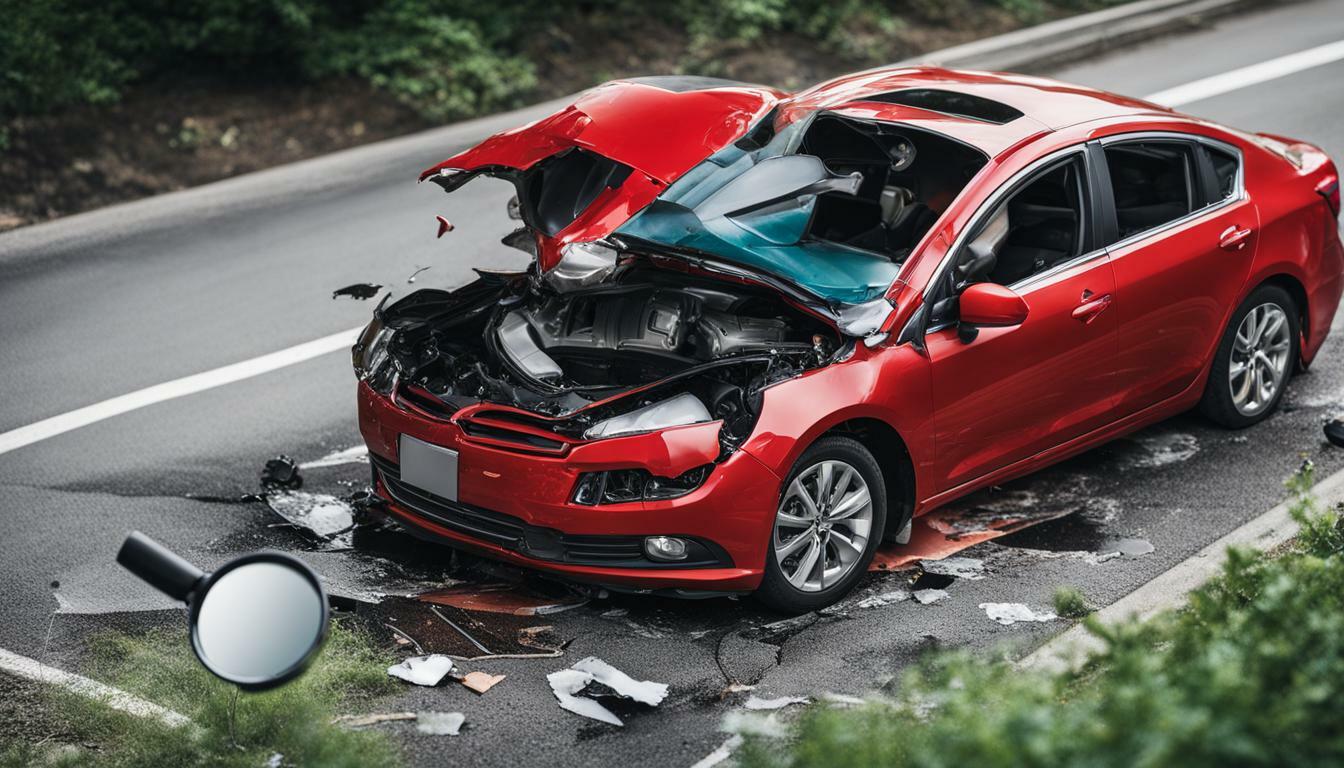
As a frequent renter, you’re likely familiar with the rental car insurance options presented before you when picking up your vehicle. Some are mandatory, others are recommended, but what do they all mean? That’s where this guide comes in handy.
Understanding rental car insurance is crucial to protect yourself and your rental vehicle while on the road. You never know when an accident or unexpected incident may occur, and having the right coverage in place can save you from costly fees and legal troubles.
Key Takeaways
- Rental car insurance is essential to protecting yourself and your rental vehicle from unexpected incidents.
- There are various types of rental car insurance coverage available, each with its benefits and limitations.
- It’s essential to understand the exclusions and limitations of rental car insurance and to consider whether purchasing insurance is necessary for your trip.
- By researching and comparing rates and understanding additional fees, you can save on rental car insurance while still obtaining sufficient coverage.
Types of Rental Car Insurance Coverage
When renting a car, it’s important to have adequate insurance coverage in case of an accident or damage to the vehicle. Here are the different types of rental car insurance coverage options available:
| Collision Damage Waiver (CDW) | A CDW is also known as loss damage waiver (LDW). It covers the cost of damage to the rental car if you are involved in an accident or if the car is stolen or vandalized. However, CDW usually doesn’t cover certain types of damage, such as flat tires or interior damage. |
|---|---|
| Liability Insurance | Liability insurance covers damage or injury you cause to other people or their property while driving the rental car. This type of coverage is mandatory in most states and rental companies usually offer it at an additional cost. |
| Personal Accident Insurance (PAI) | PAI provides coverage for medical expenses and accidental death or dismemberment if you or your passengers are injured in an accident while driving the rental car. |
| Personal Effects Coverage (PEC) | PEC covers theft or damage to personal belongings inside the rental car. However, if you have homeowners or renters insurance, you may already have this type of coverage and won’t need to purchase it again. |
It’s important to note that rental car insurance policies can vary by rental company and location, so it’s crucial to read the fine print and ask questions to ensure you have the coverage you need.
It’s also worth checking with your auto insurance provider and credit card company to see if they offer rental car coverage. Some credit cards offer rental car insurance as a perk, but it’s important to read the terms and conditions carefully to understand the coverage and limitations.
By understanding the different types of rental car insurance coverage available, you can make an informed decision and choose the coverage that best suits your needs.
Understanding Rental Car Insurance Exclusions
When it comes to rental car insurance coverage, it’s important to be aware of the exclusions. Understanding what is and isn’t covered can save you from potential headaches and financial losses.
One common exclusion to rental car insurance coverage is pre-existing damage. Rental car companies often inspect the vehicle before and after rentals, and any damage found prior to your rental may not be covered. It’s important to thoroughly inspect the rental car before driving off the lot and document any pre-existing damage with the rental company.
Off-road driving is also typically excluded from rental car insurance coverage. If you plan on driving on rough terrain, it’s important to check with the rental company to see if additional coverage is needed to protect you and the vehicle.
Illegal activities such as driving under the influence or using the rental car for criminal activity are also not covered by rental car insurance. It’s important to follow all laws and regulations while operating a rental vehicle.
Rental car liability insurance may also have limitations, especially if you’re traveling internationally. Some countries require additional insurance coverage or have different insurance laws. It’s important to research the coverage and requirements of the country you’ll be driving in.
Understanding rental car insurance exclusions can help prevent unexpected costs and complications. Always read the fine print and ask the rental company questions if anything is unclear. Rental car protection is essential, but it’s important to know the limitations to ensure you’re fully protected.
Should You Purchase Rental Car Insurance?
After learning about the types of rental car insurance coverage available and the exclusions to be aware of, you may be wondering if it’s worth purchasing rental car insurance. The answer is, it depends on your existing insurance coverage and personal preference.
If you have comprehensive and collision coverage on your personal auto insurance policy, it may extend to rental cars. However, it’s important to confirm this with your insurance provider before declining rental car insurance. Some credit cards also offer rental car insurance coverage, but it’s essential to understand the terms and limitations of the policy.
If you don’t have personal auto insurance or credit card coverage, it’s recommended to purchase rental car insurance to protect yourself financially in case of an accident. The cost of rental car insurance varies depending on the type of coverage and rental car company, so it’s crucial to research and compare rates.
Ultimately, the decision to purchase rental car insurance is up to you. Consider your existing insurance coverage, the potential cost of an accident, and your peace of mind when making this decision.
Car Hire Insurance Coverage vs. Rental Vehicle Insurance
It’s important to note the difference between car hire insurance coverage and rental vehicle insurance. Car hire insurance coverage is typically offered by rental car companies and provides protection for the rental car itself, while rental vehicle insurance provides liability coverage for damages or injuries caused to others.
When considering whether to purchase rental car insurance, it’s important to understand the type of coverage being offered and whether it aligns with your needs.
Tips for Saving on Rental Car Insurance
Don’t let rental car insurance put a dent in your wallet. By following these tips, you can save money without compromising on coverage:
- Research your options: Start by exploring the types of rental car insurance coverage available to you. Compare rates and policies from different providers to find the best deals.
- Consider your existing coverage: If you already have auto insurance, your policy may provide some coverage for rental cars. Check with your insurance provider to see what’s included.
- Use your credit card benefits: Some credit cards offer rental car insurance as a benefit, so be sure to check your card’s policy. However, make sure you understand the limitations and exclusions of this coverage.
- Choose your vehicle wisely: Some rental car options, like luxury or sports cars, can come with higher insurance costs. Renting a more modest car can save you money on insurance.
- Understand additional fees: In addition to the cost of rental car insurance, there may be other fees associated with renting a car. Read the rental agreement carefully to understand what you’ll be charged for.
By taking the time to research your options, understand your existing coverage, and choose the right rental car, you can save money on rental car insurance without sacrificing the protection you need.
Conclusion
After exploring the complexities of rental car insurance, I hope you’re feeling better equipped to make informed decisions when renting a car. Remember that understanding the types of coverage available is crucial for protecting yourself financially and legally.
Before purchasing rental car insurance, assess your existing coverage through your auto insurance or credit card. This can save you money and provide peace of mind knowing you’re already covered.
It’s also important to be aware of the exclusions and limitations of rental car insurance, so you can avoid potential pitfalls and unexpected expenses.
Finally, always research and compare rates before purchasing rental car insurance. By understanding additional fees and finding the best deal, you can save money without compromising on coverage.
Remember to read the fine print, ask questions, and choose the coverage that best suits your needs. By following these tips and strategies, you can navigate the rental car insurance landscape with confidence. Happy renting!
FAQ
Q: What is rental car insurance?
A: Rental car insurance is a type of coverage that provides financial protection in case of accidents, damages, or theft while you are renting a car.
Q: What types of rental car insurance coverage are available?
A: There are several types of rental coverage options, including collision damage waivers, liability insurance, personal accident insurance, and personal effects coverage.
Q: Do I need rental car insurance if I have my own car insurance?
A: It depends on your existing car insurance policy. Some policies may provide coverage for rental cars, while others may not. It’s important to check with your insurance provider to understand your coverage options.
Q: Can I use my credit card’s rental car insurance?
A: Many credit cards offer rental car insurance as a perk, but the coverage can vary. It’s essential to review the terms and conditions of your credit card’s insurance policy to determine if it provides sufficient coverage for your rental car.
Q: Are there any exclusions or limitations to rental car insurance?
A: Yes, rental car insurance policies often have exclusions and limitations. These can include pre-existing damage, off-road driving, driving under the influence, and illegal activities. It’s crucial to read the policy carefully and understand what is covered and what is not.
Q: How can I save money on rental car insurance?
A: To save money, consider researching and comparing rates from different providers, understanding any additional fees, and assessing your existing coverage options through your auto insurance or credit card. It’s also helpful to read customer reviews and ask questions to ensure you are getting the best value for your money.


